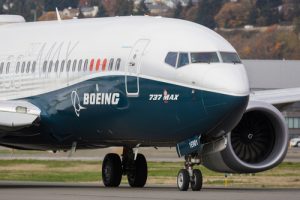
A bipartisan bill offered by U.S. Sen. Roger Wicker (R-MS) to improve aviation safety on Nov. 18 advanced out of the U.S. Senate Commerce, Science, and Transportation Committee and heads to the full Senate for consideration.
“The committee’s approval of the bipartisan aviation safety bill is progress toward improving the certification process and enhancing accountability, especially as it relates to the manufacturing of passenger aircraft,” said Sen. Wicker, committee chairman, who in June introduced the Aircraft Safety and Certification Reform Act of 2020, S. 3969.
The bill, which is cosponsored by U.S. Sen. Maria Cantwell (D-WA), ranking member of the Senate Commerce, Science, and Transportation Committee, would reform the Federal Aviation Administration’s (FAA) aircraft certification process, according to the text of the bill.
“As the FAA prepares to unground the 737 MAX, this legislation contains numerous provisions that would ensure that the agency performs its safety oversight to the highest standards,” Sen. Wicker said. “I thank Ranking Member Cantwell for working with me on these important reforms to enhance safety for the flying public.”
Among numerous provisions, the legislation also would mandate Safety Management Systems for large aircraft and engine manufacturers; require the FAA to both approve the appointment of Organization Designation Authorization (ODA) unit members and develop guidance for technical qualifications for such members; require best practices for ODAs be developed; prohibit limitations on direct communications between ODA unit members and FAA inspectors; and require the FAA to conduct more research into human factors with respect to the design and certification of aircraft, according to a bill summary provided by Sen. Wicker’s office.
Additionally, S. 3969 would provide funding authorization for the FAA to hire specialized technical staff with expertise in new and emerging technologies to assist in development of technical standards in certification; and would prohibit FAA employees from receiving financial incentives or awards that relate to certification schedules or quotas, according to the summary.



